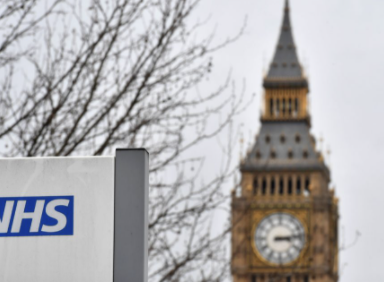Leading peers on the House of Lords Select Committee on Artificial Intelligence worry that the UK will not benefit or control AI as national data strategy is delayed.
IDG Connect | MAR 21, 2021 11:30 PM PDT
The UK has no national data strategy, which places the businesses and citizens of the European country at risk, according to the chair of the House of Lords Select Committee on Artificial Intelligence (AI). A national data strategy was promised in the autumn of 2020, but the chair of the AI Select Committee says a government consultation programme that closed in December 2020 was too shallow to provide the UK with the framework needed to derive economic, societal and innovative benefit.
“The National Data Strategy has been delayed and will report in small parts, which will not encourage debate,” says Lord William Wallace, a Cabinet spokesperson in the House of Lords, the second chamber of British politics. Lord Wallace and his fellow Liberal Democrat party peer Lord Tim Clement-Jones are at the forefront of a campaign within the corridors of British political power to get the National Data Strategy debated properly by those it will impact – UK businesses and citizens – and then in practice under the leadership of a UK government Chief Data Officer.
“The questions in the consultation were closed in nature and very much suggested the government already had a view and did not want to encourage debate,” Lord Wallace adds. The current government, which has been in place since 2010, has been incredibly vocal over the last decade of the importance of data to the UK. “They talk of nothing else and set up bodies like NHSX, and Dominic Cummings was a big fan of data,” Wallace says of the former advisor to Vote Leave, the Conservative Party and Prime Minister Boris Johnson. Lord Tim Clement-Jones worries that the attitudes of Cummings – who was forced out of the government in late 2020 – have coloured the government’s approach to a national data strategy. “He treated data as a commodity, and if data is in the hands of somebody that sees it as a commodity, it will not be protected, and that is not good for society. Palantir has a very similar view; the data is not about citizen empowerment,” Lord Clement-Jones says of the US data firm that was working on a UK Covid-19 data store.
“A small minority of politicians are following this issue, and the National Data Strategy is under the remit of the Department for Culture Media and Sport (DCMS), which is not the most powerful department in the Cabinet,” Lord Wallace says.
In December, the House of Lords Select Committee on Artificial Intelligence published a report: AI in the UK: No Room for Complacency, which called for the establishment of a Cabinet Committee “to commission and approved a five-year strategy for AI…ensuring that understanding and use of AI, and the safe and principled use of public data, are embedded across the public service.”
Lord Clement-Jones says a Cabinet-level committee is vital due to the ad hoc status of the committee he chairs. In addition, the rate of AI growth requires the government to pay close attention to the detail and impact of AI. As the report revealed: “in 2015, the UK saw £245 million invested in AI. By 2018, this had increased to over £760 million. In 2019 this was £1.3 billion…It is being used to help tackle the COVID-19 pandemic, but is also being used to underpin facial recognition technology, deep fakes, and other ethically challenging uses.”
“One of the big issues for us is, where do you draw the line for public usage? AI raises lots of issues, and as a select committee, we are navigating the new world of converging technologies such as the Internet of Things, cloud computing and the issue of sovereignty. And we have seen in the last few months that this government will subordinate all sorts of issues to sovereignty,” Lord Clement-Jones says. Adding that as a result of the sovereignty debate, businesses on both sides of the channel have lost vital mutual benefits.
“You have to look at these issues incredibly carefully. If people are too cavalier about things, like the Home Office has been over work permits, then it’s very concerning…Take the recent trade deal with Japan, it is not at all clear that UK health data is part of this deal, and the government is walking blindly into this stuff,” Lord Clement-Jones says.
Data adequacy between the UK and Europe ends in June 2021 and a number of CIOs report concerns about the loss of existing data standards and protocols with the UK’s largest trading partner. “Relationships between government and business are very poor,” the Lord adds.
Despite the attitude of “F**k business” from English Prime Minister Boris Johnson, Lord William Wallace says there is a vibrant debate about data and ethics amongst the UK business and technology community, which has to be harnessed because he says, data is not debated enough in politics or the mainstream media. “We only hear the lurid headlines about Cambridge Analytica and never the benefits this technology offers.”
Data did, momentarily, become mainstream during the worst periods of the pandemic, with local government and health agencies revealing that they were not being given full access to Covid-19 data by the central government. “The over-centralisation is very much part of the problem, we have not used public health authorities effectively, for example,” Lord Wallace says. He adds that how local and national governments collect and release data to one another needs to be discussed and addressed. “We have some really powerful combined authorities in the UK now, and their data is really granular,” adding that now GPs and local health bodies are in charge of the UK Covid vaccination programme, successful results are being delivered. Centralisation of the initial pandemic response in the UK has led to the highest death toll in Europe and one of the highest mortality rates in the world.
Global standing
As the UK exited the European Union, there was a narrative from Boris Johnson that the UK’s trading future would be closely aligned with the USA, but with Johnson’s close ally Donald Trump losing the US presidential election in 2020, the two Lords wonder if Johnson can be so assured, especially when it comes to data, and they worry about the impact on British business. “The government don’t stop to look at where data flows,” Lord Clement Jones says of the poor business relationship leading to a poor understanding. On the USA, they believe the new Biden administration will have to move towards greater data protection. On the flip side of this, Lord Wallace points out that the government has been championing the UK’s role in the Five Eyes security services pact, but it is not clear if the USA security services is able to carry out mass data collection in the UK from the shared intelligence centre Menwith Hill in the UK, claiming that there is no written agreement between the two nations.
It is for this reason the two Lords believe it is vital that the UK engages in a national debate about data’s benefits and public concerns. “The public are most scared about health data as it is the one they are most aware of, yet the debate about the government’s collection of data is absent from public debate,” Lord Wallace says. Lord Clement-Jones adds that he is concerned that there is a danger of public distrust growing. “So now it is about how do we create a debate so that we create a circular flow of data that benefits society and involves important and respected organisations like the Ada Lovelace Institute, Big Brother Watch and the Open Data Institute?”
“The UK remains an attractive place to learn, develop, and deploy AI. It has a strong legal system, coupled with world-leading academic institutions, and industry ready and willing to take advantage of the opportunities presented by AI,” concludes the Lord’s report AI in the UK: No Room for Complacency.
https://www.idgconnect.com/article/3611769/uk-at-risk-without-a-national-data-strategy.html
5th April 2021
The UK’s Role In The Future Of AI
5th April 2021
Don’t trade away our valuable national data assets
18th September 2018
UK Music Host Expert Panel on the Talent Pipeline at Lib Dem Conference
8th December 2014
Danny Tells the Lib Dems’ Record on the Economy
22nd December 2013






